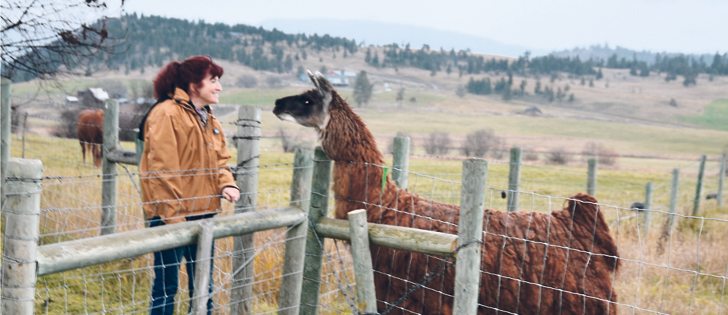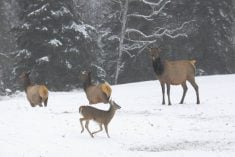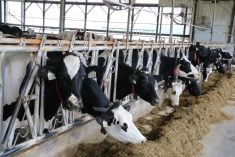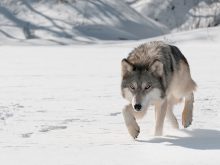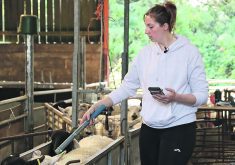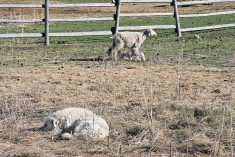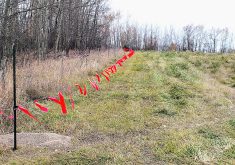KAMLOOPS, B.C. — The Livestock Protection Program that the British Columbia Cattlemen’s Association launched last spring has the support of the province’s ranchers.
“It’s a good program and a necessity,” said Ian Mitchell, who ranches in the North Thompson area.
“I don’t remember my parents talking about wolf problems around the kitchen table 30 years ago, but now I don’t ever talk to people and it isn’t a serious problem. The numbers have just ex-ploded.”
The LPP provides verification, mitigation and compensation services to cattle, sheep and dairy producers for injury, harassment or death loss caused by wolves and coyotes.
Read Also

India slaps 30 per cent import duty on yellow peas
India has imposed a 30 per cent duty on yellow pea imports with a bill of lading date on or after Nov. 1, 2025.
Annual funding of $250,000 from B.C.’s forests, lands and natural resources ministry covers the three-year program’s co-ordinator and the services of trained wildlife specialists to carry out the verification and mitigation work.
The BCCA administers the program.
Mitchell said he lost three cows and a calf this fall.
The LPP program starts with a call to the 24-hour Livestock Protection hotline, where a file is started and the program co-ordinator is notified.
The aim is to verify a kill within 36 hours and begin mitigation measures within 24 to 48 hours of positive verification.
The program has hired more than 30 wildlife specialists, who hold a trapper’s license and a verification certificate.
“The process went well for us,” said Mitchell. “We have a neigh-bour who is licensed (as a wildlife specialist) to verify and trap and he knows the area.”
South Kamloops sheep producer Gillian Watt agreed.
“The program co-ordinator got back to me within 15 minutes and a verification specialist was here within a day.”
A good number of producers have completed the verification training course offered by the Conservation Officer Service and are able to self-verify attacks.
“I like that this is building capacity rather than just the CO service,” said Watt.
“Ranchers are learning to better understand the wildlife.”
The wildlife specialist investigates the incident if the producer is not qualified to self-verify and initiates mitigation work upon approval of the co-ordinator.
“This is different from previous programs in that it targets whole pack removal,” said BCCA general manager Kevin Boon.
“The objective is to take out the entire offending pack. We were getting a lot of criticism from different advocates on the other side as well as the trapper’s association that we were splitting packs and creating a bigger problem.”
The wildlife specialist will then report the mitigation work to the co-ordinator.
The verification report also starts a compensation claim with the provincial agriculture ministry. Compensation is provided based on age of the animals involved and market value.
Mitchell said that can be a problem when the animals are out on the range.
“You have to find a kill to be able to claim compensation,” he said.
“So you have to be there within a day or two. If it’s a calf, you can find the smear, but the wolves won’t have left even a broken bone.”
The program co-ordinator re-views each incident and may make recommendations for enhancing a farm’s livestock management practices to reduce the likelihood of further predation.
“Management practices are an important aspect,” said Watt.
“ I have an Akbash guard dog and a llama who have both done some amazing things to protect my sheep from the coyotes, but I have to bring my sheep up close to the house every night, I have to keep the fence secure and buried and I just bought some bigger lights.
“I don’t mind living with the coyotes — they can eat the ground squirrels.… But when they get habituated on the sheep it becomes more than just my problem. Why would they hunt when they can just pull up to the table?”

